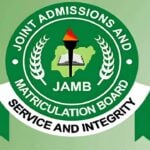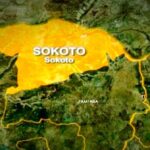When most people see food waste, they see rot and rubbish. But John, a Nigerian scholar from Abeokuta, who grew up in Lagos, sees something different: power, progress, and possibility.
That vision carried him from Nigeria’s busy cities to the Anaerobic Digestion research lab of Clarkson University in Potsdam, New York, where he is pursuing a Master of Science in Environmental Science and Engineering in the Institute for a Sustainable Environment Department. There, in one of the United States’ leading facilities for waste-to-energy innovation, John has achieved a breakthrough that is drawing global attention.
By integrating an Advanced membrane technology, i.e., a cation exchange membrane module, into the anaerobic digestion process, he has successfully removed toxic ammonia, stabilized the bioreactor system, and boosted methane production. The result is an over 25% increase in methane yield and an ammonia recovery rate of more than 95% which is a leap forward in renewable energy technology.
In April 2025, at the New York Organic Summit in Troy, John unveiled his findings to a room of policymakers, scientists, and innovators. His presentation didn’t just spark applause; it also sparked hope in the field of sustainable environment.
John’s findings are not just significant for the US; they strengthen the nation’s pursuit of Net Zero emissions by 2050. The US Department of Energy has long highlighted the promise of turning organic waste into renewable energy. Yet, inefficiencies and ammonia buildup have slowed progress. John’s work addresses this very bottleneck, offering scalable solutions to countries around the world and inspiring interest in sustainable energy solutions.
At Clarkson, food waste from campus dining halls is being converted into energy (i.e., biogas) through anaerobic digestion. With John’s innovation, that process becomes more reliable and productive, showing how universities and cities alike can cut waste and generate clean energy simultaneously. His research aligns with circular economy initiatives across the US, proof that sustainability is not just about conserving, but about transforming waste into wealth. John’s work offers a promising vision for the future of waste-to-energy innovation.
Yet, for John, the deeper motivation lies back home. Nigeria generates millions of tonnes of food waste every year, much of it left to rot in landfills. Instead of producing energy, it pollutes the air, soil, and water, releasing methane, a greenhouse gas far more potent than carbon dioxide. John’s work is a crucial step towards addressing these urgent environmental challenges.
John envisions a different story: one where Lagos, Port Harcourt, and Abuja harness waste not as a burden but as a resource for power, farming, and cleaner cities. With his innovation, food waste could generate affordable biogas, while ammonia recovery and the effluent of the AD bioreactors can provide farmers with nutrient-rich fertilizer. This would not only reduce pollution but also strengthen food security.
“This work is not just for US,” John said. “It is for every nation, i.e., for every household waiting for light, for every farmer needing affordable fertilizer, and for every community struggling with waste management. Our challenges can become our solutions.”
John’s breakthrough is more than personal. It contributes directly to the United Nations Sustainable Development Goals (SDGs): SDG 7 (Affordable and Clean Energy), i.e., by producing renewable biogas from food waste. SDG 11 (Sustainable Cities and Communities), i.e., through cleaner waste management. SDG 12 (Responsible Consumption and Production), i.e., by reusing discarded food. SDG 13 (Climate Action), i.e., through reduced greenhouse gas emissions. SDG 2 (Zero Hunger), i.e., by recovering ammonia as fertilizer to boost agriculture. His journey demonstrates how one individual’s research can have a ripple effect on global sustainability targets.
John’s story is captivating not only because of the numbers but also because of the path he walked. He began his academy journey at Yaba College of Technology, where he studied Industrial Maintenance Engineering, then returned to earn a Bachelor of Science in Environmental Science and Resource Management from the National Open University of Nigeria. Along the way, he worked with Multinational manufacturing companies, for instance, Procter and Gamble Nigeria, where he managed energy systems that powered large industrial plants. Over time, this hands-on experience inspired his interest in renewable energy systems and their potential to address Nigeria’s growing environmental challenges. John is also a member of various professional bodies, both local and international, including the Institute of Strategic Management, Nigeria (ISMN), the American Academy of Environmental Engineers and Scientists (AAEES), and the American Society of Civil Engineers (ASCE). He also holds professional certifications from world-class institutions such as the Clarke Energy Training Institute (UK), the Knights of Safety Academy (UK), the Hibreed Station (Canada), the University of Hyderabad (India), and the IBEC (Egypt). It wasn’t a straight road, but it was a purposeful one. His industrial experience gave him the grit, and his education gave him the science. Together, they fueled the breakthrough he is now celebrated for.
John is more than a scholar; he is a bridge. His research advances the US’s renewable energy ambitions while carrying solutions back to Nigeria’s urgent realities. He embodies a vision where knowledge flows across borders, where a discovery in New York can light up homes in Lagos, and where waste no longer symbolizes despair but possibility.
His story is an inspiration for young Nigerians and a reminder for the world: brilliance can emerge from any corner, and solutions to global problems often begin with local questions.
As John often says, “Waste is not the end of the story. With vision and science, it becomes the beginning of power, progress, and a sustainable tomorrow.”
WATCH TOP VIDEOS FROM NIGERIAN TRIBUNE TV
- Relationship Hangout: Public vs Private Proposals – Which Truly Wins in Love?
- “No” Is a Complete Sentence: Why You Should Stop Feeling Guilty
- Relationship Hangout: Friendship Talk 2025 – How to Be a Good Friend & Big Questions on Friendship
- Police Overpower Armed Robbers in Ibadan After Fierce Struggle






